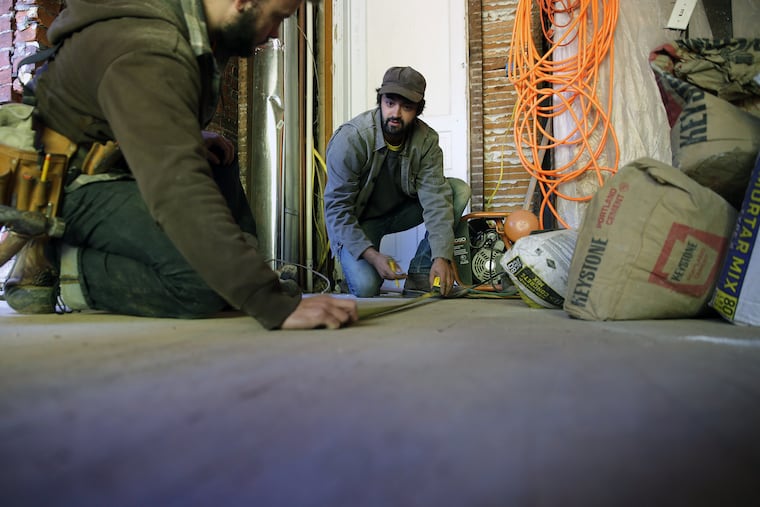Why this construction boss decided to turn his workers into owners
Michael Heinzer didn't have any interest in being a boss. So he decided to take a more democratic approach.

The first time Michael Heinzer really saw the power of working as a collective, he and his employees were about to get, excuse the language, screwed.
His crew of about 10 construction workers had planned their whole summer around a job they were promised for months. At the last minute, the contractor told Heinzer he didn't need them anymore.
Heinzer returned to his team, dejected.
But when he delivered the news, they spoke up: If that's how that guy is going to treat us, we won't work for him anymore, they said. Period.
The threat ultimately resulted in them getting that job back.
To Heinzer, it was clear: If he was the only one withholding his labor, it might not have made a difference. But 10 carpenters — who had a track record of being reliable and talented — making the threat? That was another story.
It's the kind of spirit he wanted to bring to his construction company. That's why his team has embarked on the long and difficult journey to convert the business into a worker co-op, a company that's owned and run by some or all of its employees. It's a concept with a long history that's seen a recent spike in interest, both in Philadelphia and the country as a whole.
The 40-year-old Heinzer and his crew, most of whom live in West Philadelphia, are in year two of the conversion process for the business that Heinzer started with a partner who moved away. Come Jan. 1, they'll officially become a worker co-op called Hivemind Philly.
The business case for worker co-ops
For Heinzer, the shift aligns with his politics, his hope of creating an alternative to a capitalist system "that considers you infinitely replaceable." But it's also a business move.
Like co-op advocates around the country, Heinzer believes that giving workers ownership and influence over a company is a powerful way to attract and retain the best people — arguably the most pressing (and most expensive) challenge in any industry.
The typical trajectory for certain kinds of construction workers, according to soon-to-be Hivemind Philly owner Zach Ogden, is that you work for a company, and once you become skilled enough, you go off on your own. It's what he did. But it was a nightmare, he said. It was hard to find dependable people. It took him away from the actual work he enjoyed doing.
Ogden, 32, says his hope for Hivemind is that the team can create a company where workers have space to grow.
There's also an atmosphere of trust that comes from the transparency of the co-op structure. When you're working for someone else, you know what you're getting paid, but you often don't know what your employer is charging the client. At Hivemind, all the owners will have access to the books.
It's also a more realistic way to motivate workers. There's the constant narrative of a company being a founder's "baby." But, Heinzer said, if it only truly belongs to you and not your workers, how can you expect them to treat it like their baby, too?
The hard work of converting into a co-op
Heinzer recalls telling his accountant about his plan to convert into a co-op, to which she responded, "Don't do that. It's a headache." (They eventually figured out that the company could still be structured as a limited liability company but with an operating agreement that it would run as a cooperative, which would simplify tax matters.)
In the end, they are starting with a crew of eight owners. They're developing a pathway for the others, some of whom don't have as much construction experience, to eventually become owners, too. They're also figuring out how the company should be run:
How should tenure vs. hours worked be factored into profit sharing? What committees are needed and how can we ensure that we're not all meeting to approve a change to the Instagram account?
It's too soon to tell if all the work will be worth it, Heinzer admits. But he's committed to giving it a shot, to challenge the assumption that work is a place where "labor is just being harvested."
"I don't know why that's the standard," he said. "I don't think it has to be."